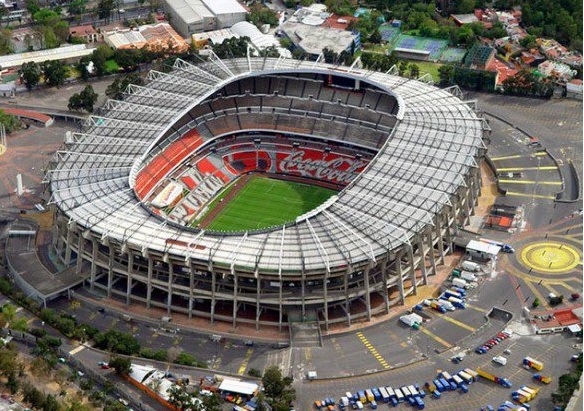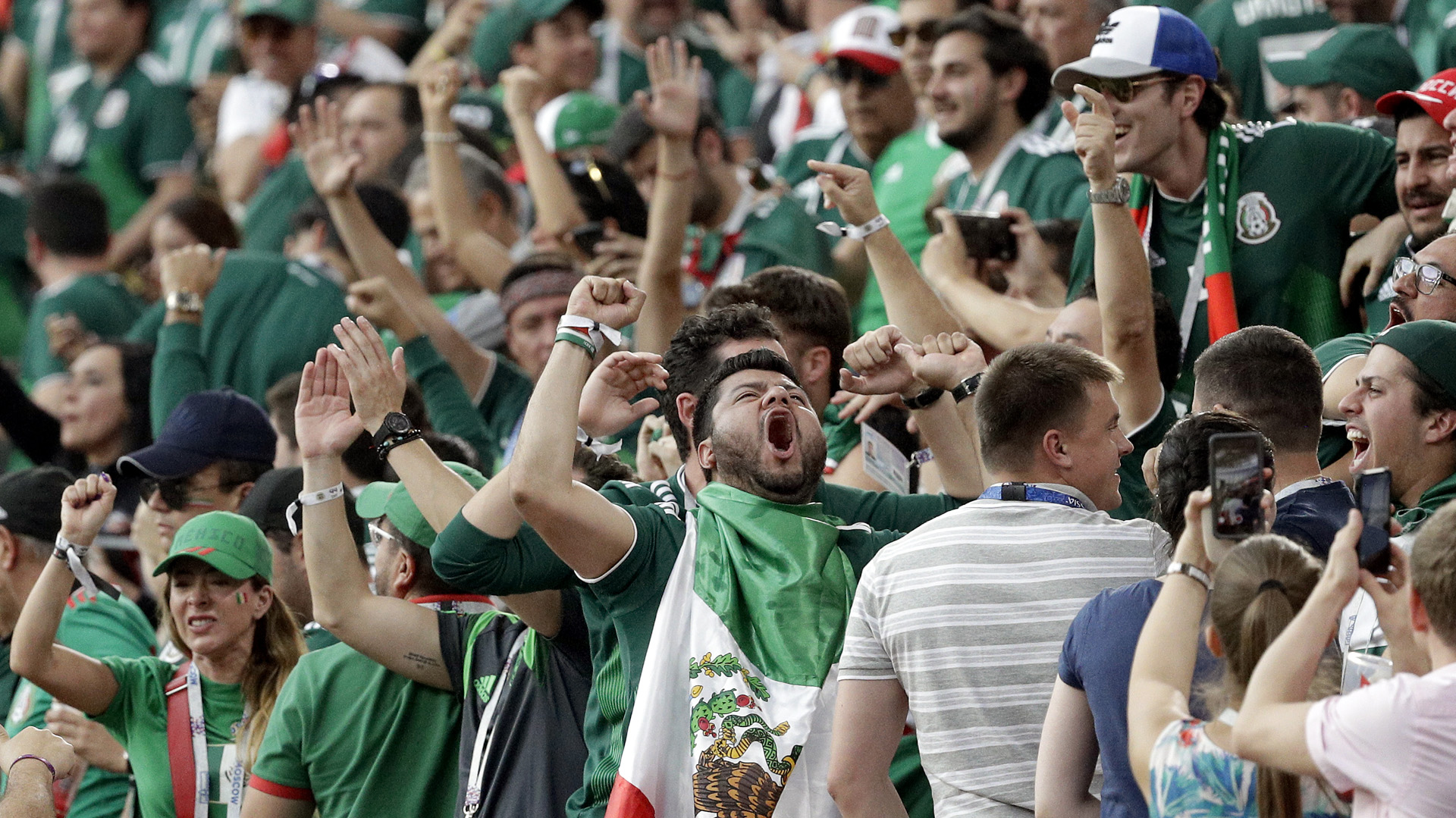The Mexican Football Federation says any fan caught screaming a homophobic chant at its matches will face a five-year ban from national team games.
Federation President Yon de Luisa said fans buying tickets will have to register their personal information and present a QR Code and identification at stadium entrances. The security presence at national team matches will be increased in an attempt to ensure anyone heard making the offensive chant will be expelled and face a ban.
The measures are the latest move in the Mexican federation’s efforts to eliminate the chant, which has been directed at opposing goalkeepers and led to sanctions by FIFA, soccer’s governing body.
“We can’t tolerate discriminatory acts. We can’t play in empty stadiums. We invite our fans to adopt these measures,” De Luisa said Monday during a news conference. “It is not a measure designed to avoid the re-sale, but without a doubt will have an effect on that because now fans, even though they have a ticket, must have registered to be able to enter.”
FIFA’s disciplinary committee announced a two-match ban on fans and a 60,000 Swiss francs ($65,000) fine in June following anti-gay chants heard during Olympic qualifying matches in March against the Dominican Republic and the U.S. at Guadalajara. The penalty was reduced to one game in August following an appeal, and El Tri opened World Cup qualifying at an empty Estadio Azteca in Mexico City with a 2-1 win over Jamaica on Sept. 2.

FIFA’s disciplinary committee on Nov. 1 ordered Mexico’s team to play its next two home World Cup qualifiers without fans and fined the federation 100,000 Swiss francs ($110,000) as punishment for homophobic chants during October qualifiers against Honduras and Canada in Mexico City.
Mexico hosts Costa Rica on Jan. 30 and Panama on Feb. 2 at Azteca. The federation says it plans to invite about 2,000 people to the games, a group of team relatives, and federation employees.
The federation hopes to have the new measures in place for its March 24 home qualifier against the United States.
The chant emerged in 2003 during a pre-Olympic tournament in Guadalajara. It spread during the 2014 World Cup in Brazil and since then has cost the Mexican federation more than a dozen sanctions, despite campaigns urging fans to stop.
TYT Newsroom



